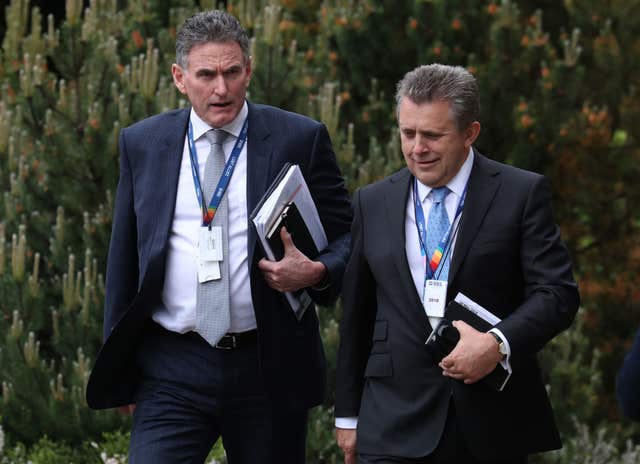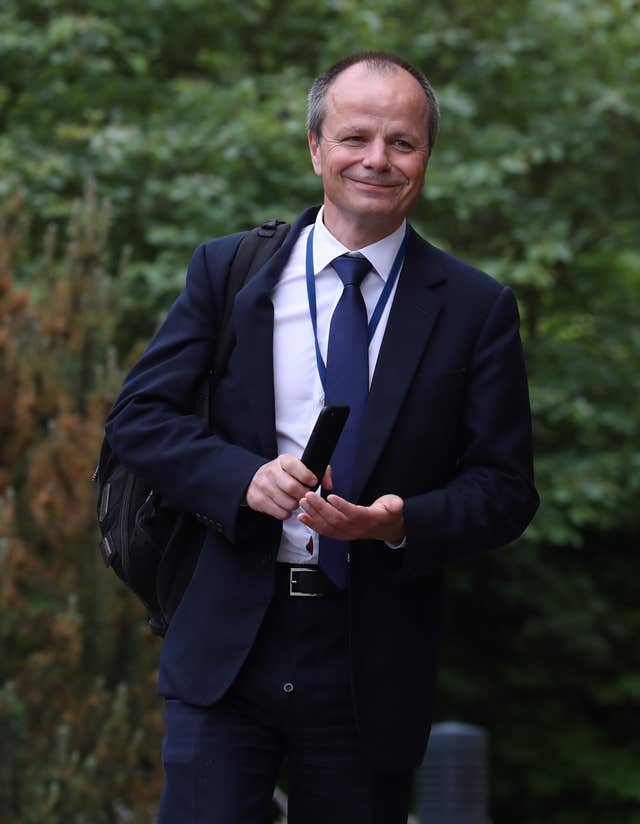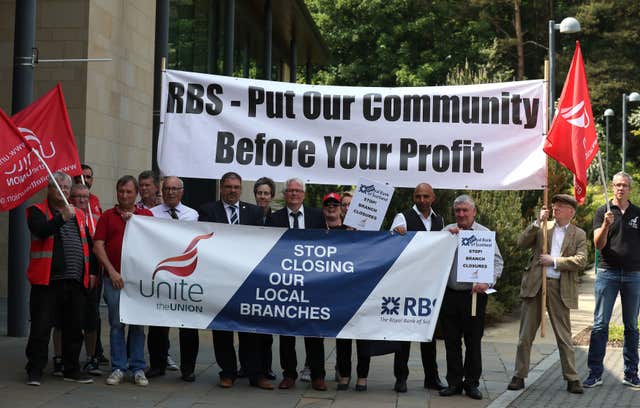Royal Bank of Scotland’s outgoing finance chief has cautioned that now is not the “optimum” time for the Government to sell down the taxpayer’s stake in the lender.
Ewen Stevenson said the recent slump in European stocks – sparked in part by jitters over the rise of Eurosceptic parties in Italy – might be a cause for pause as the Government prepares to privatise its near 72% stake in the bank.

Speaking on the sidelines of RBS’s annual general meeting in Edinburgh, Mr Stevenson said the UK Government “don’t talk to us about what their sell-down intentions are”.
“Last time they gave (chief executive) Ross (McEwan) a call out of courtesy a few minutes before they were due to start selling.”
However, the outgoing chief financial officer played down reports that a 10% stake sell-off may be imminent.
“Obviously when you look at what’s been happening in the markets in the last few days with Spain and Italy and a significant sell-off in bank stocks, I would be surprised if now is an optimum time to sell stocks.”
The Government is hoping to sell £15 billion worth of shares by 2023, around two-thirds of its stake.
However, it is facing a near-£26.2 billion loss on its holding, with the lender’s shares languishing well below the average 502p share price paid during the crisis era bailout, at around 276p.

The bank unexpectedly issued a market update on Wednesday to announce Mr Stevenson’s resignation just hours before the RBS AGM.
The state-owned bank said Mr Stevenson resigned from his role to “take up an opportunity elsewhere”.
While it is unclear when Mr Stevenson departs, he will remain in his position to oversee an “orderly handover” of his responsibilities.
However, he told reporters that he expects to still be at RBS by the time interim results are released in August.
RBS announces that Ewen Stevenson has resigned from his role as Chief Financial Officer and Executive Director to take up an opportunity elsewhere: https://t.co/P9BreQmjYs
— RBS (@RBS) May 30, 2018
Mr Stevenson said now was the right time to move on to a new role.
“You’ve seen what we’ve done over the last four to five years – it’s a very natural inflection point given the amount of stuff we’ve now cleaned up at the bank, so it’s a very natural point to go off and do something else,” he told reporters.
“I mean the bank’s back in great shape, ready to be privatised, so I know people are always surprised by the news, but they really shouldn’t be surprised by the trigger points that create the news.”

The search for a successor will begin immediately.
Mr McEwan credited him with helping resolve a number of the bank’s “major legacy challenges” during his tenure.
The announcement of his departure comes just as executives are expected to face a barrage of questions from shareholders.
The bank is likely to be quizzed over plans to kickstart dividend payments after recently agreeing a 4.9 billion US dollar (£3.6 billion) settlement with US regulators.
The deal, which related to claims RBS mis-sold toxic mortgage bonds in the run-up to the financial crisis, paves the way for the resumption of payouts, ending a barren decade for investors.
It is also facing pressure over plans to shut 162 branches in England and Wales following a review of its network.
The lender said earlier this month that it was targeting sites that were in close proximity to other branches, as it starts to reintegrate its Williams & Glyn network back into the core bank.
On Tuesday, RBS said it will no longer fund Arctic oil projects and pledged to cut lending to firms profiting from coal as part of an updated energy policy meant to take a harder line on climate change.
